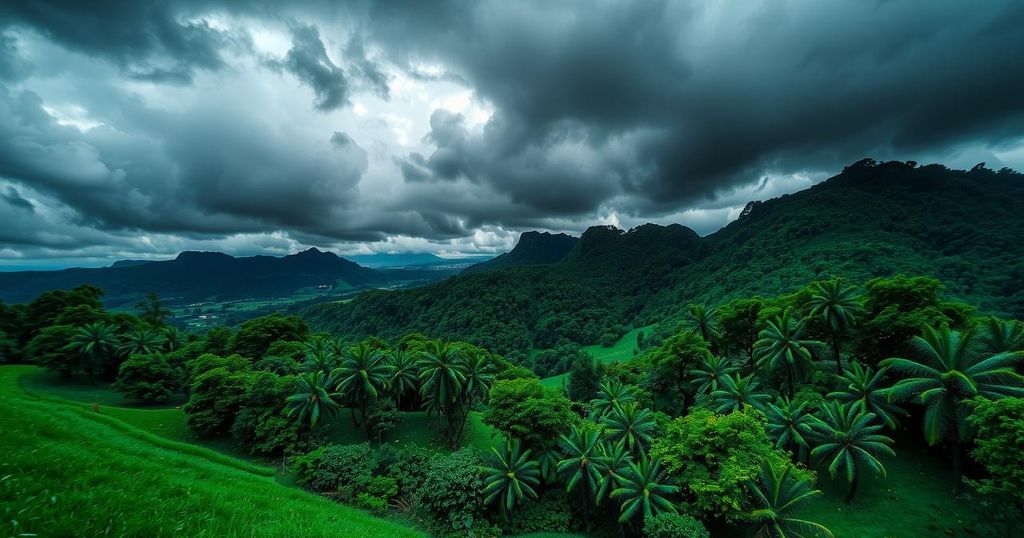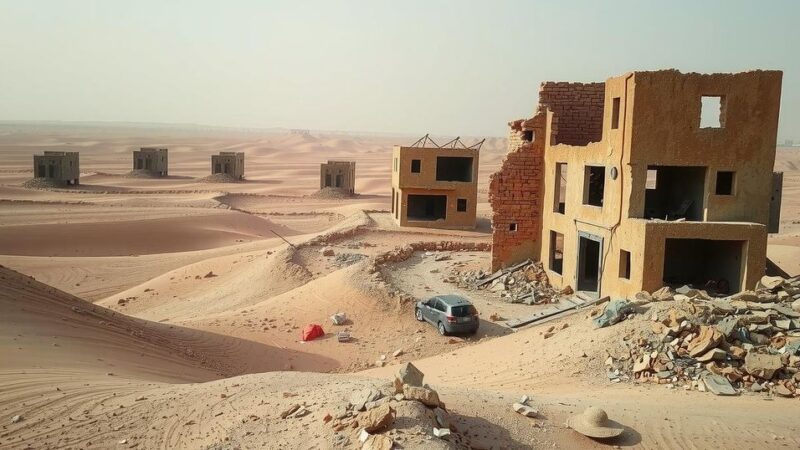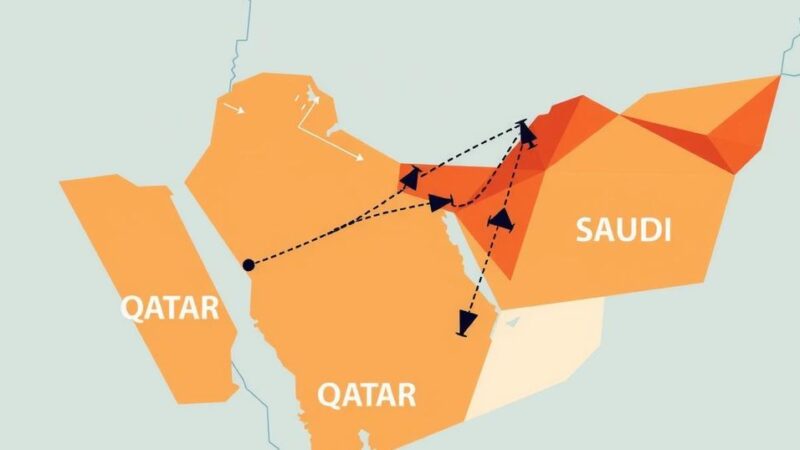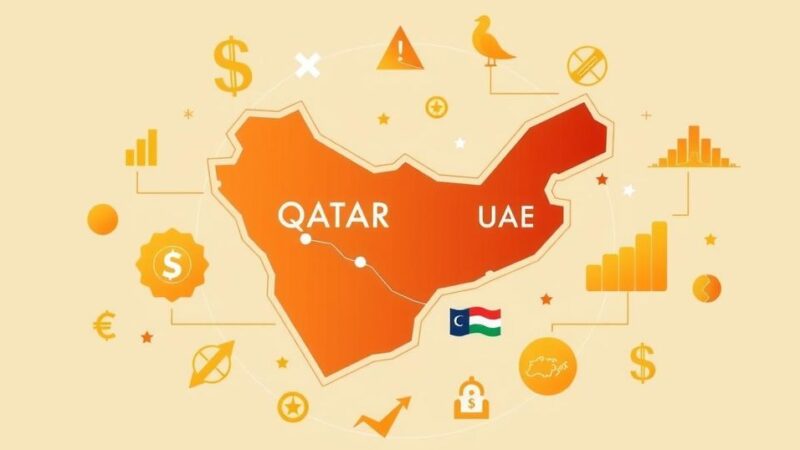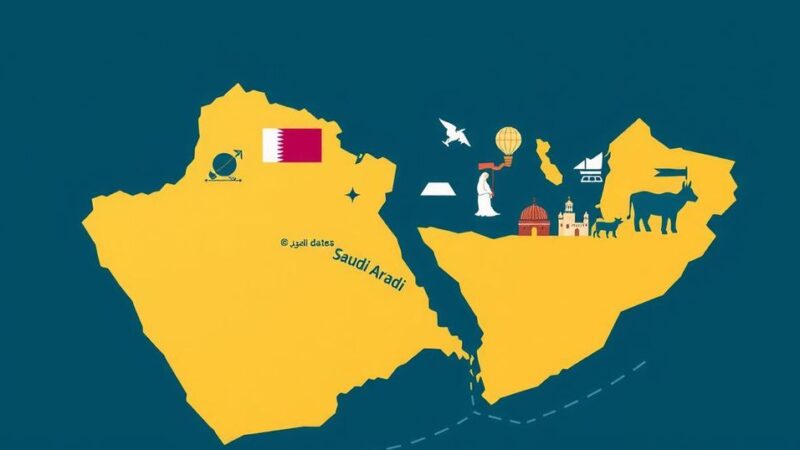Recent fighting in eastern Democratic Republic of Congo has resumed, just three days after a ceasefire was called by African leaders. The DRC government has accused the M23 rebel group of terrorism amid increasing tensions and humanitarian crises resulting from ongoing conflicts. Limited success has been noted in diplomatic efforts aimed at resolving the long-standing violence in the region, with calls for targeted sanctions against Rwanda linked to resource exploitation accusations.
On Tuesday, fresh fighting erupted in eastern Democratic Republic of Congo (DRC), occurring only three days after African leaders called for a ceasefire and witnessed a brief pause in hostilities. M23 rebels launched attacks on Congolese army positions in South Kivu province at dawn, demonstrating a significant escalation in a conflict characterized by significant casualties and displacement of populations. The DRC government has classified the M23 group as a terrorist organization, while the United Nations and the United States regard it as an armed rebel faction, amid accusations of Rwandan support for the group, which Rwanda has publicly denied.
This resurgence of conflict arrives shortly after east and southern African leaders mandated their military staff to devise an immediate plan for an “unconditional” ceasefire by Thursday, as the ongoing war has resulted in thousands of deaths and considerable internal displacement. The M23 rebels have swiftly captured vast territories in the mineral-rich area of eastern DRC since resuming armed activities in late 2021, beginning with the takeover of Goma, the capital of North Kivu province, at the end of the previous month.
The clashes on Tuesday occurred near Ihusi, approximately 70 kilometers from the provincial capital, Bukavu. Security sources reported multiple accounts of heavy weapon detonation. The nearby Kavumu airport facilitates troop reinforcements for the Congolese army and additionally has a significant military base in close proximity, raising concerns as local preparations intensify against the expected M23 offensive.
In Bukavu, schools have closed, businesses shut down, and residents began evacuating due to fears of imminent attacks. Control over Bukavu would confer complete command of Lake Kivu to the M23 and its potential Rwandan supporters. Concurrently, nearly 300 Congolese soldiers are facing military prosecution for serious crimes, including rape and murder, amidst the ongoing turmoil.
The M23, claiming to aim at liberating all of Congo and removing President Felix Tshisekedi from power, has made strides toward the highlands above Bukavu to impair supply routes for the DRC army. However, Burundian soldiers assisting the Congolese forces have successfully thwarted M23 advances, with around 10,000 Burundian troops currently stationed in South Kivu. Additionally, the Burundian army sent an extra battalion to reinforce their presence on Friday.
In Goma, the M23 has established initiatives to set up its administration, including recruitment drives for a local police force. The humanitarian situation in Goma has deteriorated severely, with many areas lacking running water, forcing residents to resort to unsafe sources. A marked rise in cholera cases has been reported among internally displaced individuals, according to the UN humanitarian agency, OCHA.
Despite UN appeals to reopen Goma’s airport for humanitarian efforts, it remains closed, further complicating the situation. The upcoming African Union meeting in Addis Ababa will address the deepening crisis in the east of the DRC, as international calls for de-escalation grow amid concerns of a potential regional conflict. Nonetheless, diplomatic negotiations to resolve this prolonged conflict have not yielded positive results, and the DRC’s calls for specific sanctions against Rwanda have achieved limited effectiveness.
The DRC government accuses Rwanda of seeking to exploit its natural resources, including minerals essential for technology and energy, which Rwanda refutes, alleging its own need to eliminate armed groups that threaten its national security. Compounding the issues faced by Kinshasa, an attack in Ituri province by the Lendu militia resulted in 51 fatalities, primarily among displaced individuals—a grim reminder of the multifaceted violence afflicting the DRC for over three decades.
In summary, the recent outbreak of fighting in eastern Democratic Republic of Congo underscores the persistent instability plaguing the region. Despite calls for a ceasefire and international diplomatic efforts, armed conflicts continue to escalate, particularly with the resurgence of the M23 rebel group. The humanitarian crisis is deepening, illustrated by recent violence and public health concerns. Efforts to address these issues through diplomatic channels and military sanctions have, so far, met with limited success, highlighting the need for a more effective resolution strategy to restore peace and stability in the affected areas.
Original Source: www.voanews.com
